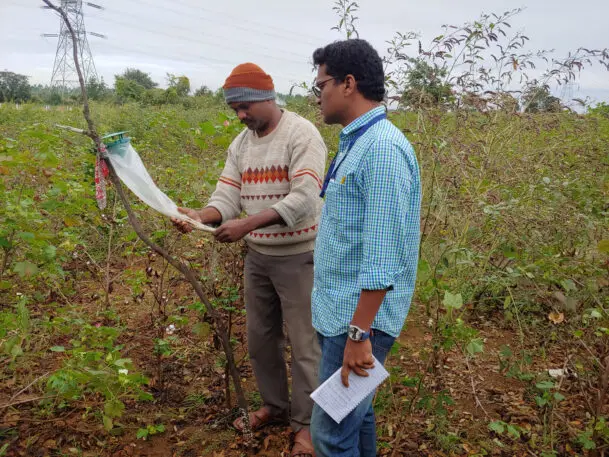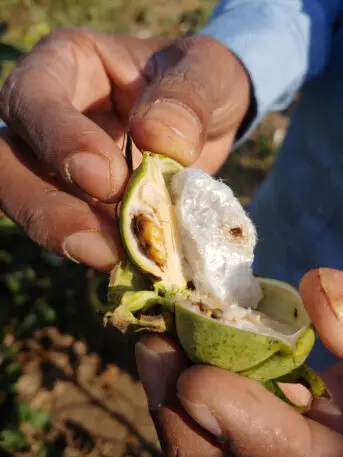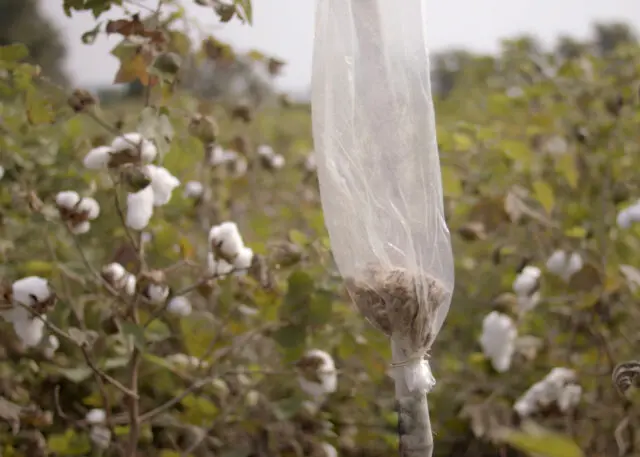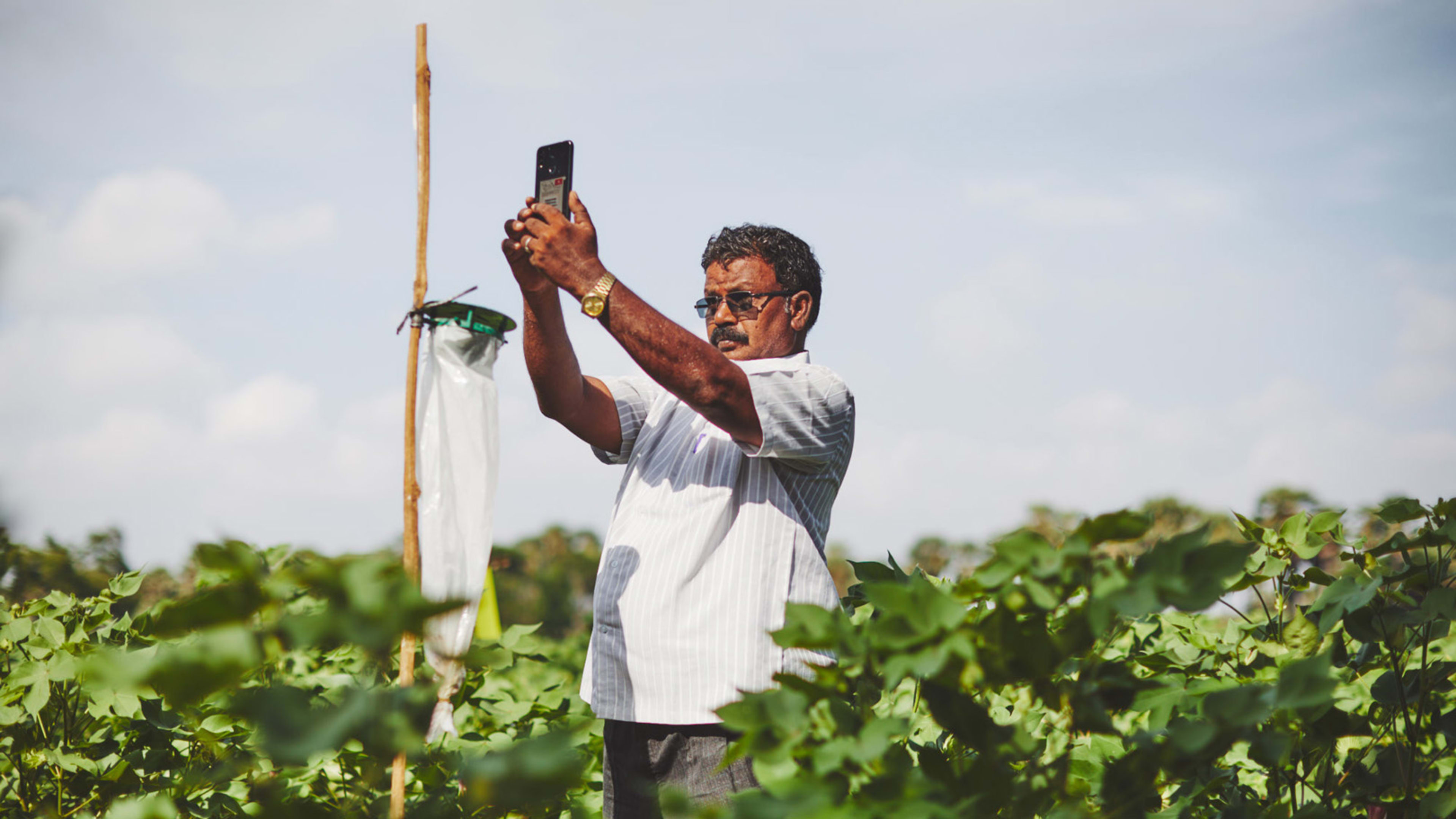In India, 70% of rural households depend on agriculture, of which 80% are smallholder farmers, owning two hectares or less. About 6 million cultivate cotton, a cash crop that’s India’s third-largest agricultural product after rice and wheat. It’s particularly vulnerable to pests: In 2017, half of the entire cotton crop in Maharashtra, the country’s second-most populous state, was destroyed by a particularly ravenous-type pest.
To help farmers prevent those kinds of disasters, and thus increase crop yields and profits, an Indian nonprofit, Wadhwani AI, has teamed up with Google’s philanthropic arm in its first venture in Asia. They’ve worked together to improve the nonprofit’s “AI-powered farm decision support system”: an app that uses artificial intelligence to identify what pests are eating crops and then predict the trajectory of the infestation and get actionable remedy advice from agricultural experts. They hope this will help protect farmers’ livelihoods, and curb the indiscriminate use of pesticides, which can do more harm than good.


[Image: courtesy Google.org]Each geographic community tends to have one or two “lead farmers,” more tech-savvy, educated members of the community, Vora says; only they’d need the app (which can work without an internet connection), and could relay the information to the 10 to 40 other farmers in their area at village meetings. Generally, the advice will come down to whether to spray or not to spray. If pesticide is needed, the app will teach farmers to spray in a discerning way, based on science, which is better than the indiscriminate, widespread use of general pesticides, which does damage to farmers’ health, soil quality, and the environment—and eats up profits. “Farmers who are already fighting poverty are pushed into despair,” Vora says. For less serious infestations, they might recommend organic products such as neem oil, a biopesticide derived from India’s neem tree with pest-repelling properties.
Last year, Google committed to investing $10 billion in helping India’s small businesses to digitize, including AI for social good in agriculture, which CEO Sundar Pichai announced as a “deeply personal” initiative. Wadhwani AI was also chosen from thousands as one of few companies—and part of the first cohort of Asian winners—to be part of a Google.org fellowship program, receiving a $2 million grant, and the help of a team of nine fellows. They helped Wadhwani AI’s staff over six months to relaunch its app, developing more in-depth UX research, a full app redesign, and a new infrastructure to speed up the AI learning models—which, crucially, will help Wadhwani’s other social-good projects, such as its baby-weighing machine.

Of course, a large bulk of this work has had to take place as India has become inundated with an inordinate number of COVID-19 deaths, and the emergence of a new coronavirus variant. The small amount of on-the-ground work had to transition remotely, with the help of brand-new tools that the team “hacked together,” says Robert Tung, Google.org product manager, and one of the fellows. “Through all of that, I’ve been inspired to see the farmers’ resilience throughout this pandemic,” he says. Vora adds: “We listened and watched firsthand as they faced the pandemic with the same resilience and bravery they bring to every challenge that comes their way.”
We’ve updated this story to reflect: that the investment in digitizing Indian business is from Google, not Google.org; that Wadhwani AI was not the only Asian winner of the first round of investments and is a nonprofit; that the AI was trained on 30,000, not 4,000 images; and that it does not require sending images to agricultural officials to determine if there is an infestation.
Recognize your brand’s excellence by applying to this year’s Brands That Matter Awards before the early-rate deadline, May 3.
